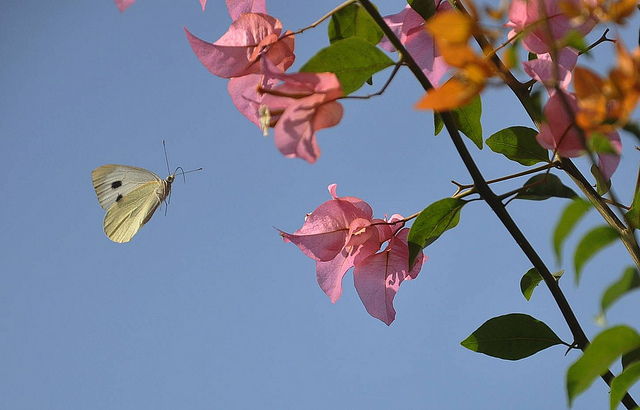I’ve never been especially good at growing plants. I lack a green thumb—and patience.
Before my parents moved out of state, they brought their precious brood of babies to my house, mumbling something about not wanting to haul them up on their drive, and the colder weather being a problem for them anyway.
I scoffed, making jokes about myself being the real threat, and how their plants only had a matter of time left to live.
When the weeks passed by, and the first few inevitably withered up into nothingness, my mother remarked, “Oh, for goodness sakes. All you have to do is water them!”
Yeah—water them, prune them, love them. I didn’t have time for that. If they couldn’t just thrive on their own, I wished they would all rot and rid me of their trouble.
I pulled into the driveway one morning, after having just finished up at work. For the first time in a long time, my eyes made their way towards the direction of my discarded garden. I could see what was mostly grass needing to be mowed, weeds in the early stages of infringement on forbidden territory and limbs of the fuschia bougainvillea, a lone survivor, stretching out of control in a feeble attempt to run away.
I wasn’t having a particularly bad morning, as nothing unpleasant had happened, but something about the sight of it all curiously irked me.
Still in my work clothes, I stomped over to the source of my annoyance, not even bothering to push up my long black sleeves. I intended to give an effortless tug at the base and for the trouble to surrender. When it tightened its grip, I knew the infliction was worse than I imagined and that it meant to put up a fight.
I got down on my knees and pulled again, this time more firmly, accepting the challenge. A gruesome tug of war ensued, and it went on for what felt like an eternity. I clawed at the the unrelenting earth, demanding the release of my plant. What surfaced was not the several feet of troublesome weeds that I sought, but instead a plethora of emotions I was sure I had suppressed.
Anguish. Frustration. Rejection. Loneliness.
All the things I cast away, because I simply couldn’t be bothered. I realized something else was suffocating there in the entanglement. Sweat beaded up on my forehead, and tears burned my cheeks, like the the acidic sap that nipped at my hands. I pushed past the pain, burrowing my fist into the soil, until it was met by the clasp of another hand. I situated my feet and then, I yanked her up.
It was me.
The plants weren’t the only thing I had been neglecting.
Caught up in the day-to-day of taking care of everyone and everything else, I forgot to make time to take care of the most important thing—myself.
I kept putting off acknowledging my feelings—stuffing them down, hoping they would sort themselves out. But, of course, they didn’t.
I’ve learned that taking care of ourselves is a lot like tending to plants.
We have to:
Pull the weeds. Eliminate the root of the problem. Anything that is holding you back or inhibiting you from flourishing to your truest potential has got to go. Nip it in the bud.
Prune. Cut the remaining ties of the things that no longer serve you—negative emotions, people, places, jobs. You have to be willing to shed these things in order to make room for new growth.
Allow moderate sunlight. Most things need light to grow. Including you. Get outside. Feel the delicious warmth on your skin. Bask in it. Let it love you.
Water. Love yourself—shower yourself daily with kind words and encouragement. Even when you feel like you are going through a dry spell—muster up whatever you can, and sprinkle it on.
Allow enough space to grow. Don’t sell yourself short and settle for a porcelain pot, when you have an entire world within your reach.
Be patient. Extraordinary things don’t happen overnight. Take the time to care.
.
Relephant:
3 Teachings that are Right in Front of Us, if only We’d Look.
.
Author: Emily Duty
Editor: Yoli Ramazzina
Photo: Flickr/PREM KUMAR MARNI












Read 3 comments and reply